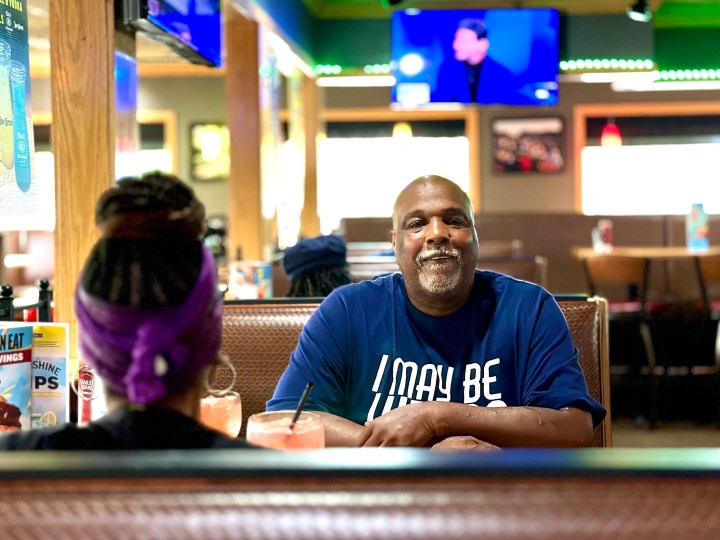
Want to make friends from a different economic class? Try your local Applebee’s
Want to make friends from a different economic class? Try your local Applebee’s

On a cool and drizzly fall day, 60-year-old construction worker James Williams settled into a booth for a lunch date at an Applebee’s in Chicago.
“Today I’m off work, and most of the time when I’m off work, I come here with my wife,” he said.
Williams loves Applebee’s $12.99 boneless wings and said the restaurant has the best spinach dip in town.
“They have decent deals, they have great prices — oh, and they have great drinks,” he said.
Applebee’s has another thing going for it: In the United States, where class segregation seems to be a way of life, the chain restaurant represents one of the few places where people from all kinds of economic backgrounds come together.
A pair of researchers recently looked at places where people are most and least isolated by income. They found that places close to home — parks, pharmacies and schools — are most segregated. That’s because people with a similar socioeconomic status tend to live near one another.
But the researchers also found places where people who are either rich or poor come together.
“Full-service, sit-down restaurant chains,” said Maxim Massenkoff, who co-authored a recent working paper titled “Rubbing Shoulders.” He teaches economics at the Naval Postgraduate School in California.
Massenkoff and Nate Wilmers, a sociologist at the Massachusetts Institute of Technology, studied cellphone data to find places where folks with different incomes might interact — and maybe even become friends.
The researchers expected those places might be churches or libraries, but Massenkoff said it was places like Olive Garden, Applebee’s and Chili’s where people from the top and bottom income percentiles were most likely to mix.
Massenkoff and Wilmers then connected their data with a study about cross-class Facebook friendships. It turns out, those relationships happen in areas with lots of chain restaurants.
“It’s not saying that if you randomly plop an Olive Garden or an Applebee’s somewhere that you’ll see a whole bunch of really beautiful new friendships blossom, but it’s consistent with that idea,” Massenkoff said.
Construction worker James Williams said he loves coming to Applebee’s because of the service.
“They treat me the same as if I was a regular guy just walking off the street. They have to accommodate the rich, the poor,” he said. “They have decent everything, so this works for me.”
Over at Olive Garden in Burbank, Illinois, just outside of Chicago, on any given night there are tables full of young and old and people of all races chatting and enjoying giant plates of spaghetti and chicken Alfredo.
Valentin Rodriguez had just finished dinner with his son on a recent evening. He said it’s the versatility and predictability that keeps him coming to Olive Garden.
“Everyone likes Italian food — it’s consistent,” he said.
The eggplant parmigiana will taste the same at an Olive Garden here in Chicago as it does in Bismarck, North Dakota. Variety is another part of the broad appeal for many customers: There’s something for everyone in those giant menus.
Olive Garden hostess Ruth Gonzalez said the atmosphere at her restaurant is kind of like family for both workers and diners.
“Some people have many different backgrounds, and we have many regulars coming in every day,” Gonzalez said.
She added that in her two years working there, she has seen customers forging relationships.
“Sometimes they’ll bump into each other and be like, ‘Oh, I just saw you last time,’” Gonzalez said. “They actually do become friends, and you’ll see them coming in together another time.”
And that’s what researchers say the study is hinting at: Bottomless wings and unlimited breadsticks may not be the answer to segregation, but they provide one way to bring people from different backgrounds together.
There’s a lot happening in the world. Through it all, Marketplace is here for you.
You rely on Marketplace to break down the world’s events and tell you how it affects you in a fact-based, approachable way. We rely on your financial support to keep making that possible.
Your donation today powers the independent journalism that you rely on. For just $5/month, you can help sustain Marketplace so we can keep reporting on the things that matter to you.











